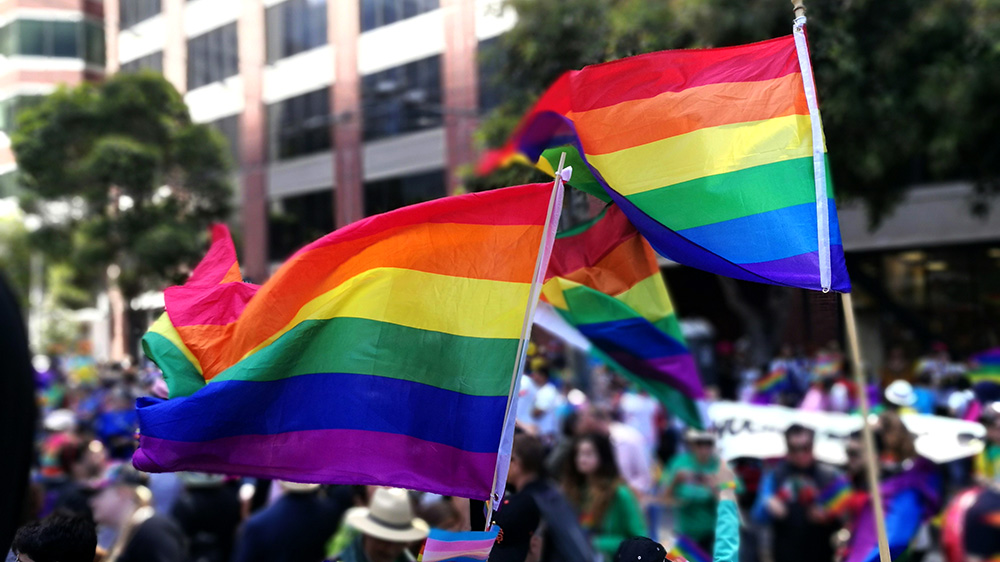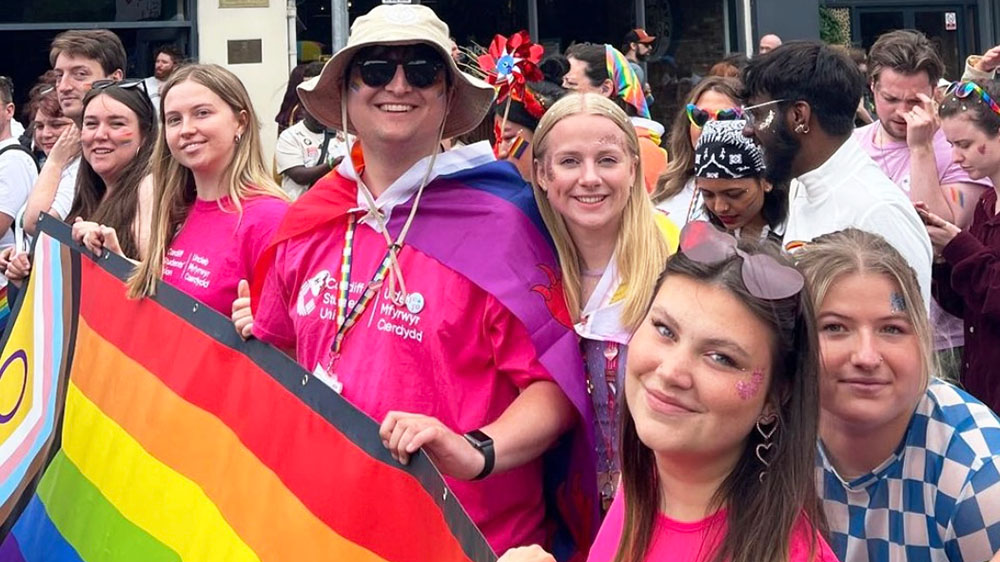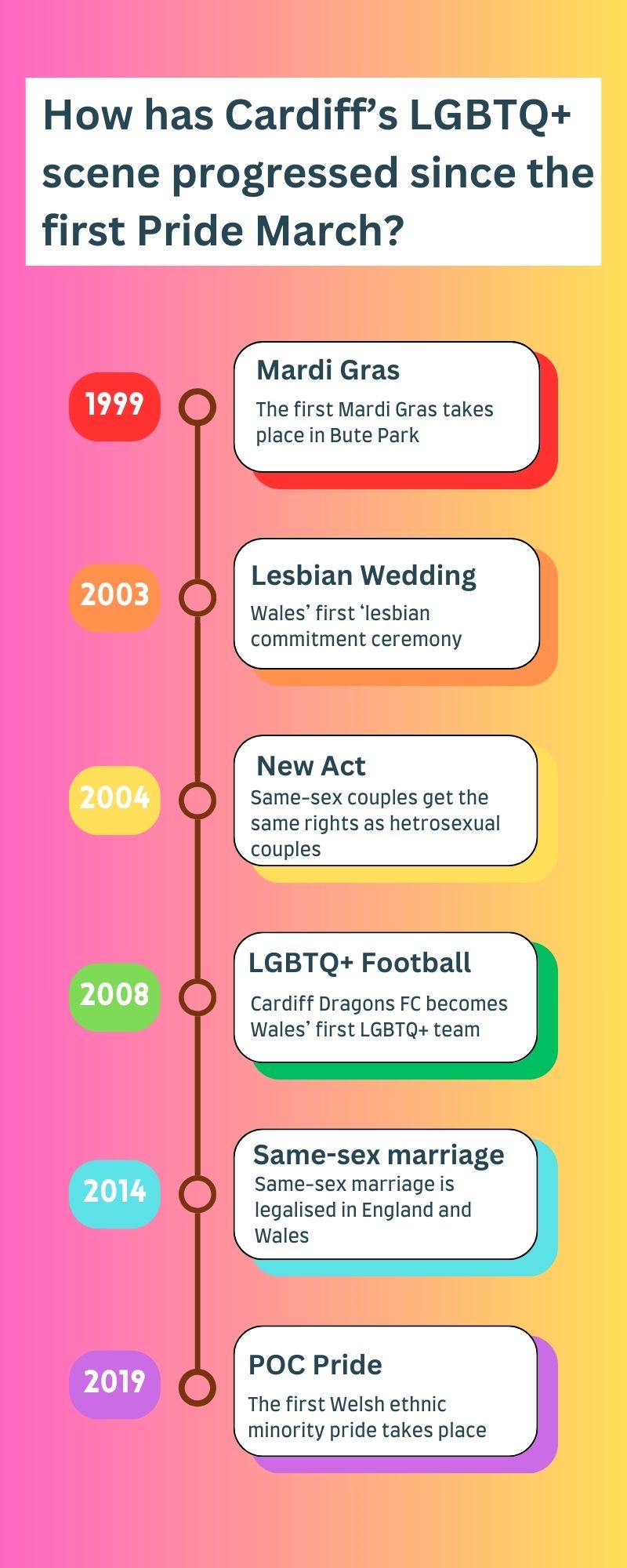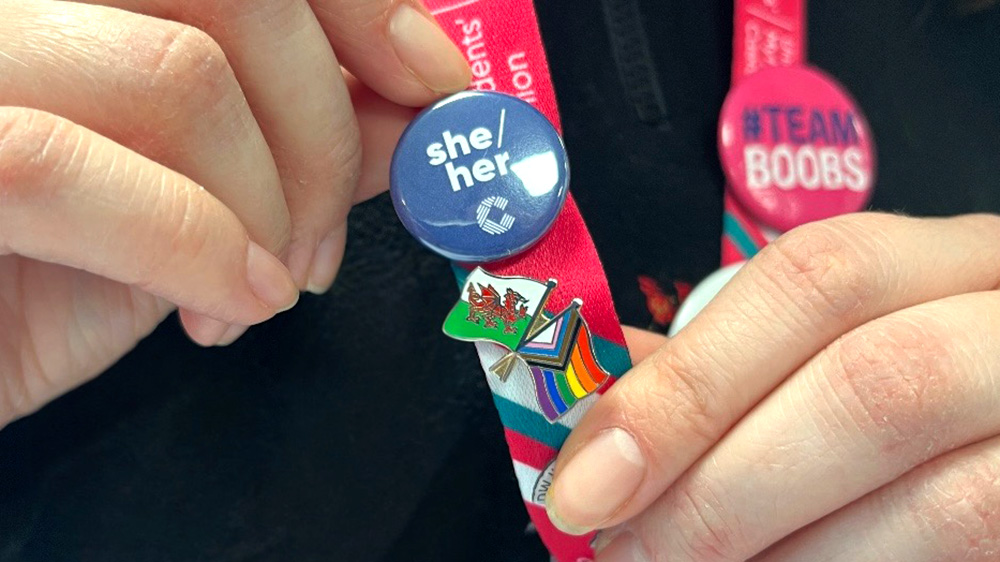With this year marking the 40th anniversary of Cardiff’s first Pride march organised by the university’s Gay Society, how important are universities at helping the LGBTQ+ community today?

Sarah Clayton, a second-year student at Cardiff University, was queueing at a till in a local supermarket. As she waited for her turn, she overheard the customers in front of her hurling sexual orientation related slurs at the cashier, who had simply asked to see some identification for the item they were buying.
“While it wasn’t directly at me, it really reminded me how we are not always safe in the places we think are safe,” says Sarah.
Cardiff University is home to CU Pride, the LGBTQ+ Society, which aims to provides support and community for students, free from judgment.
“It means a lot to me being a part of this community. It’s important to let students know that they are represented and included and that this is a safe space for them,” says Eve Chamberlain, the Vice President of societies and volunteering at Cardiff University.

It has been four decades since the first pride march in Cardiff which was held in 1985 by Cardiff University’s Gay Society. The march was organised by two students, Tim Foskett and Francis Brown who walked the march to fight for equality.
This took place at the height of the AIDS crisis, a time when misinformation led to increased discrimination of LGBTQ+ people, particularly gay and bisexual men.
“They must have been so brave to do it back then,” says Eve. “I’d be intrigued to know what the society was like all those years ago. I would love to show them how far we have come in this university society.”

Although LGBTQ+ rights have progressed significantly, there is still a long way to go. 47% percent on young people identifying as LGBTQ+ have experienced discrimination in school or at university because of their sexual orientation, according to the 2024 ‘Their world’ survey.
“I think for me, when I say I’m bisexual, it sounds silly, but a lot of people don’t really believe it, says Eve. “Some people have said to me that ‘Bisexuals don’t exist,’ and I know some of the time people may not mean it but it’s not nice to hear that and be invalidated like that.”
“There was one setting where I felt unsafe to mention I had a girlfriend,” says Sarah, an occupational therapy student working on placement. “Often people talk about partners to help build rapport but I felt I couldn’t do that as all the patients were older adults and religious. I felt if I mentioned it, it would effect my learning experience and I feared them showing discrimination.”
Having a place for LGBTQ+ students to go, free from any fear of judgement is essential. “Knowing there is a safe space is so nice, you feel like you can really express yourself,” says Eve. “Being surrounded by the queer community is very uplifting and makes you feel more validated in yourself.”
For Sarah, being part of the university society has been beneficial. “At the beginning of the year I was feeling isolated as people didn’t get the gay culture,” says Sarah. “Just having someone to listen where I didn’t have to explain myself every thirty seconds.”

In 2024 there were over 1,100 recorded sexual orientation hate crimes in Wales, according to a Welsh Government statement. These statistics are thought to be higher as many victims do not come forward following an incident.
“I think the most important thing is just to make sure you are calling it out, and if you see something that doesn’t look right, with homophobia taking place, you need to stand up and say that’s not okay,” says Eve.
The university has also introduced the gender identity fund which helps support those who in need of gender affirming products, including binders, packers and tucking underwear and breast forms.
“Right now, the focus needs to be on trans people and non-binary people as we can see violence happening to them already,” says Sarah. “We need to fight for each other and give voices to those who are not heard.”
